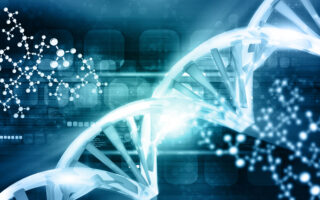The majority of biotherapeutics are produced through recombinant DNA technology using various host cell expression systems derived from bacterial, mammalian, yeast, plant or insect cells. In the case of gene therapy products involving viral vectors, empty and partially assembled viral capsids are product related impurities that can have significant impact on safety and efficacy profiles.
The host cell protein (HCP) profile of each cell line is unique and specific under a given culture condition and manufacturing process. The number of HCPs present in the upstream samples in manufacturing can run anywhere from a few hundreds to greater than thousand proteins depending on the host cell used. Despite complex and improved purification procedures involving multiple steps to obtain highly pure biotherapeutic drugs, there is a high probability that a few HCPs co-purify with the drug molecule and end up as residual HCPs in the final product.

These contaminating HCPs have the potential to affect product safety, efficacy and quality of the drug product. There are several concerns with residual HCPs but the primary ones are that they may potentially induce anti-HCP antibodies on their own or act as adjuvants to elicit anti-drug antibodies that could generate a clinical effect in patients and compromise the efficacy and safety of the biotherapeutic.
In order to keep the levels of residual HCP in the final product as low as possible, the manufacturing and purification procedures must be optimized to consistently remove these contaminants. This necessitates the development of an assay sensitive enough to measure the HCP levels in the downstream manufacturing and purification process to monitor how effective each step is in HCP clearance. The regulatory authorities also require a quantitative determination of HCP contaminants in the final drug product using a cell line specific HCP assay.
The antibody reagents used to develop these assays continue to be one of the main limiting factors in increasing sensitivity and detecting different proteins. Reagent development approaches have varied dramatically from the use of commercial kits to process specific HCP antibodies for each therapeutic. Commercial kits may be used for HCP quantitation until process validation, but once a program advances to later stages of clinical development (i.e., Phase II/III), platform-specific or process-specific HCP antibody reagents should be generated.
Successful antibody generation efforts often lack a consistent, robust and effective approach to generate antibodies sensitive enough to meet the lower levels of quantitation required as well as ability to detect a broad range of possible HCP contaminants.The sensitivity and specificity of the assays are only as good as the antibody reagents that are used to run them.
Gene therapy products present additional complications when developing these antibody reagents and specific experience dramatically increases the chances of a successful project. Unlike monoclonal antibody therapeutics, the gene therapy products often use human cells to grow the viral vectors. The corresponding host cell proteins are very poor immunogens which make it even more challenging to raise antibodies with good coverage of HCPs.
Leveraging experience, optimized techniques and procedures, and the integration of various strategies, we generate quality antibody reagents with much higher success rates, increased sensitivity, broader coverage and higher yields.
Covance – Antibody Reagent and Vaccine Experience – >150 Anti-HCP Reagent Projects













